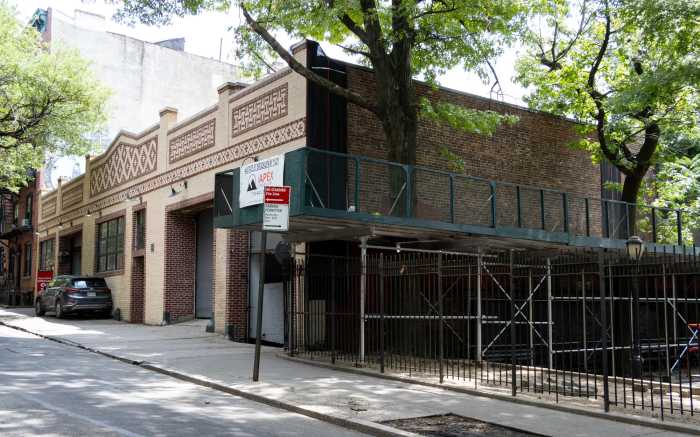A group of renters living in the footprint of Atlantic Yards vowed to take their case to another court after a State SuÂÂpreme Court judge dismissed their case last month.
The lawsuit was filed on behalf of 11 rent-stabilized tenants who charge that the Empire State Development Corporation, which is overseeing Atlantic Yards, failed to adequately compensate protected tenants whose leases were canceled when ESDC condemned their buildings to pave the way for Bruce Ratner’s mega-development.
The ESDC has said that Ratner must shoulder the burden of the relocating tenants. But the lawsuit argues that the relocation assistance offered by the developer is riddled with loopholes and conditions that reduce it to a “sham.”
Justice Walter B. Tolub ruled that the suit should be taken to state’s Appellate Division, a court with a reputation for favoring the state in eminent-domain-related cases.
Attorney George Locker, who is representing the renters at 473 Dean St. and 634 Pacific St., said he’ll appeal.
“The state has taken a rent-stabilized lease and a home for many years without providing appropriate compensation,” he said. “This case must be heard on its merits.”
A.J. Carter, a spokesman for the ESDC, said the agency was pleased with the procedural victory. But he declined to comment further.
The decision filed by Tolub said that the tenants are “condemnees” who could challenge the state on eminent domain procedure, but not, as Locker attempted, using rent-stabilization laws as their sword.
One eminent domain lawyer said that the decision put Locker between a rock of an unfriendly Appellate court and a hard place of eminent domain law, which is geared towards compensating owners, not tenants.
“[The decision created] a real Catch-22,” said Michael Rikon, an eminent domain lawyer who represented tenants who lost their homes to Ratner’s Metrotech project in the late 1980s.
“Tolub is defining the [tenants] as ‘condemnees,’ but they have not been given the right to compensation that the condemnee is allowed. And this decision will make getting that compensation tougher.”
Rikon said Locker had tried to avoid this scenario by challenging the ESDC using housing laws that protect tenants.
“Now that intervention may be impossible,” Rikon said.
























